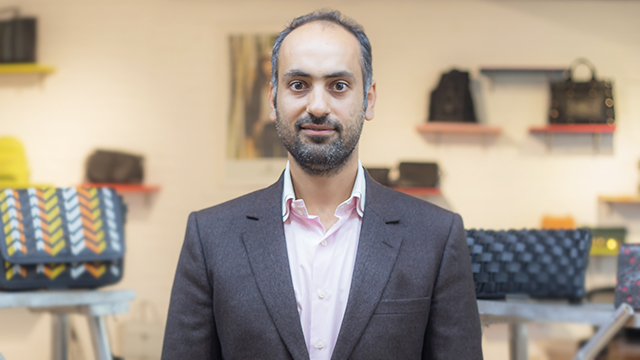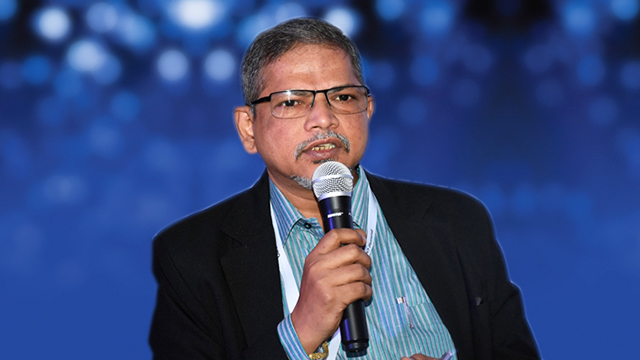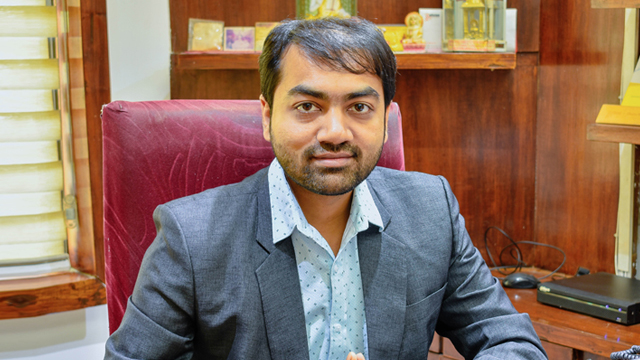What do SMEs expect from the new government?

Economy
303 week ago — 10 min read
The largest democracy in the world has elected its new government and that too with a resounding mandate. While the election results indicate that the confidence of the people in the re-elected government is high, the expectations of the citizens are also at an all-time high. Considering that the government in its first term had introduced various initiatives and schemes for the startup and SME sector, it now remains to be seen if the government will continue to extend its commitment and support to this sector.
GlobalLinker members share their thoughts and insights on the tangible ways in which the government can boost the SME sector.
Here is what they had to say:
Yuktie Jhangiani of Higher Highs Retail Pvt. Ltd, who founded the brand Kosha, is hopeful that the government will keep their promise of scaling the startup community in India and get the economy up to 10% growth rate.

She shares, “The way in which the BJP has won, is akin to becoming the prized unicorn in the startup world. In a democracy, just like the retail market, the customer or voter is king. And it is their trust that the BJP has been successful in achieving. Despite the errors that were made with demonetization and GST implementation - SMEs which were most badly affected have voted this government back to power. Two years after demonetization, there is more cash circulating in the economy than there was in 2016. Why have voters chosen Modi? Why have they chosen Gautam Gambhir in East Delhi over Atishi Singh? I am not sure if glamour, good PR did the trick or if it was just the lack of a strong contender."
Yuktie further shares, “According to the Ministry of Micro, Small and Medium enterprises, MSMEs contributed close to 30% of India's GDP. At the start of their previous term, the government created a lot of hype about 'Startup India'. However, liquidity continues to be a challenge for the SME. I hope the government brings its focus back to us and makes credit more accessible. Since this Government is building on its already created foundation of last 5 years, I hope it will now focus on growth and get the economy back to 10% GDP.”
On asking what are her expectations from the new government, Yuktie shares a few points:
- While there have been initiatives like a plastic ban in Maharashtra or compulsory garbage segregation; after the first month of creating fear and fining mostly innocent individuals, the noise and law fizzles out. I hope the government and its representatives continuously implement the initiatives on ground.
- Emphasis on sustainability - There is enough evidence about increase in surface water temperature and t's ill effects on our entire ecosystem. Strong steps must be taken to ensure India and Indians become carbon negative. We must take advantage of our legacy in having the world's best natural resources including the Himalayas, which must be treasured with more action than the Kohinoor in UK.
- Stop China from dumping cheap goods on us, through any way and form - The government has given access to our markets to brands which come across as Korean or Japanese, but have products that are made in China. We constantly see our neighborhood stores stock up on Chinese stationery and more. It is essential to curb this immediately for two reasons. Firstly this hinders the growth for SMEs in India; secondly it is constantly reducing the quality of consumption and therefore life.
- Focus on travel and tourism - India has the best to offer to foreign travellers, from the mighty Himalayas to the green backwaters, from legendary Taj Mahal to the modern Statue of Unity. However, its share in terms of foreign visitors is among the lowest. I hope the government lays emphasis on marketing the country to increase inbound tourism and bring in valuable foreign exchange.
Ravi Kariya founder of Ebizfiling India Private Limited feels that the government should focus more on easing compliance requirements.

He says, “The government has steadily taken steps to expose shell companies and dummy directors. However in the process, compliance burden of SMEs has increased significantly. This, I think should be a priority in times to come.”
Geet Jalota founder of Askgeet HRD Solutions OPC Pvt Ltd. opines that if the government wants people to start their own business, then they would have to be given the liberty to work on their own terms (from their home or maybe without an office address).

She shares, “Through skill building initiatives, the government is skilling the youth. But who is skilling the existing job holders? The level of communication skills, computer skills and basic work ethics are something that many lack. Secondly salaries are low and timings high and there is no compulsion for the employer to train their employees. The third and the most worrying move by the government is the removal of the pension scheme. This way we are soon going to see a massive surge in urban poverty among experienced people; because there is hire and fire in favour of younger, more qualified people, therefore government can give tax exemptions to employer for investing in mandatory training of employees."
She adds, "I also believe that complying with certain rules forces you to lie. If government wants to encourage more people to start their businesses, then they have to modify their rules to include unique ways in which people function."
Girish Sachdev, co-founder of Drishti Lifestyle feels that the government needs to extend more support to exporters in the country.

He shares, “Need more support for exporters. Better planning is required for stringent laws adopted for leather tanneries because it’s leading to people adopting malpractices for running operations. A systematic approach for the same would be better."
Sandeep Raut, founder of Going Digital shares his hopes and expectation from the government in a succinct manner.

He says, "I believe the government will keep up the pace of digital transformation in all sectors by utilising the SME sector for growth in the digital domain. The government should also engage industry experts in the digital Indian initiative. The SME sector can contribute significantly in the digital sector."
Shriyans Bhandari, CEO & Co-founder of Greensole has some definite ideas on the policies the government should adopt to boost startups.

He shares:
- Angel tax could be removed which would encourage more investments
- Government recently started iStart, which is basically an incubation centre in various states. This should be scaled up
- There should be direct conversation between startups and the government
- Encourage more government sponsored delegations to international events like DAVOS, Global Entrepreneurship Summit.
Shriyans sums up by stating, “India needs startups to reach the scale of the big 4 startups - Amazon, Apple, Microsoft and Google that uplifted the US economy.”
Sridhar Narayanaswamy, Managing Partner of Innovatus Systems states, “One of the major issues all SMEs face is cashflow."

He suggests, “If the GST payment date is shifted from present 45 days to another 30 days, for any invoices raised, especially for SMEs with a turnover less than INR 5 crores, it will be a great boon to help in cashflow.”
Sridhar adds, “There are so many schemes for SMEs but there is no single agency where one can get help for all these, especially in Tier 2 and Tier 3 cities. Setting up 'SME Help Points' will help. Or such a task can be assigned to CII (Confederation of Indian Industry) and they can take the SME views to the government.”
“In the new government, perhaps a separate ministry for ‘Make In India’ objective, will help in focusing on it,” Sridhar opines.
Anirudh Gupta, CEO of Ashiana Financial Services, offers two concrete suggestions.

He shares, “Given the thrust over next five years on infrastructure, tax free infra bonds can be reintroduced. Also, long term capital gains on equity and allied securities needs to be increased to 3 years from an investor point of view. These two measures will increase business opportunities for SMEs and build confidence in the minds of long-term investors."
Mehul Shah, CEO of Elision Technolab LLP shares, “In the current scenario of SME market, ESOPs (Employee Stock Ownership Plan) plays important role for an organization to keep their key team member with them for longer period.”

He adds, “My suggestion is that shares which are granted by startup organisations to their key members should be taxed only when they sell ESOPs, not when the stock options are allotted to them. Today Employee Stock Ownership Plans are taxed as part of income when a key employee gets allotment of shares. In such scenarios, an employee has to pay tax on allotted shares even though they have not received any monetary benefit. I recommend that ESOPs be taxed only when the actual sale happens of shares and not at the time of allotment."
What are your thoughts on India’s new government? How do you think the startup and SME community will be benefited? Share your thoughts in the comments section below.
Image courtesy: Shutterstock.com
Network with SMEs mentioned in this article by clicking on the 'Connect' button on their profile. Yuktie Jhangiani Verma, Ravi Kariya, Geet Jalota, Girish Sachdev, Sandeep Raut, Shriyans Bhandari, Sridhar Narayanaswamy, Anirudh Gupta, Mehul Shah.
Disclaimer: This article is based solely on the inputs shared by the featured members. GlobalLinker does not necessarily endorse the views, opinions & facts stated by the member.
Posted by
GlobalLinker StaffWe are a team of experienced industry professionals committed to sharing our knowledge and skills with small & medium enterprises.
Network with SMEs mentioned in this article
View GlobalLinker 's profile
Other articles written by GlobalLinker Staff
Guide on Selecting the Right IT Products for SMEs
23 hours ago
Best Practices for Procurement of IT Products
23 hours ago
Most read this week


















Comments (1)
Please login or Register to join the discussion